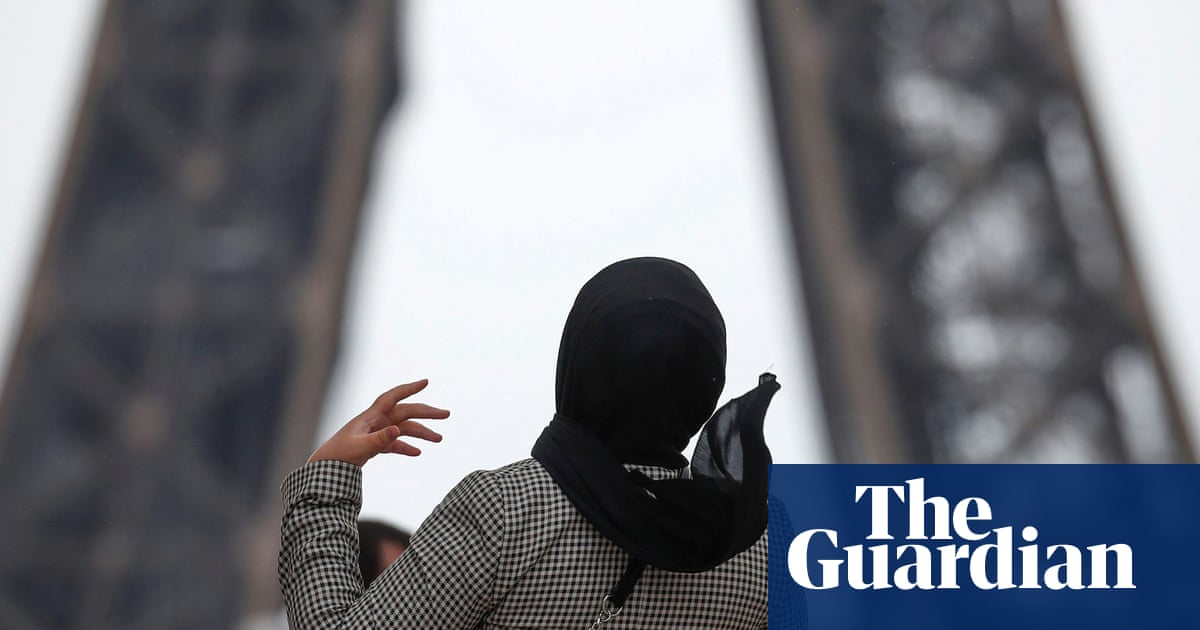Emmanuel Macron’s centrist political party has suggested banning girls under 15 from wearing the Muslim headscarf in all public places, as the president chaired a high-level government meeting to discuss what it called “political Islamism” in France.
The French president’s office said he had asked ministers to come up with proposals before June to address the “serious” findings of a report that Macron commissioned last year into the presence of the Muslim Brotherhood inFrance.
The report found that the Muslim Brotherhood – a movement which was founded in Egypt more than 90 years ago and launched the modern phenomenon of politicalIslam– posed a “threat to national cohesion” in France, and risked undermining “the fabric of society and republican institutions”.
Before the meeting, Gabriel Attal, the former prime minister and now head of Macron’s party, Renaissance, proposed a ban on “minors under 15 wearing the veil in public spaces”. He said the Muslim head covering worn by young girls “seriously undermines gender equality and the protection of children”. Attal toldLe Parisienhe also wanted to introduce a criminal offence of coercion for parents who make their daughters wear the veil.
Attal’s proposals were criticised by some on the left. The Socialist party lawmaker Jérôme Guedj said Attal was “chasing the far right” and turning French secularism against Muslims.
Macron’s office said the report on the Muslim Brotherhood in France would be published by the end of this week. The Élysée said that because of the “seriousness” of its findings, the government had been tasked to make proposals swiftly.
Agence France-Presse, which obtained a copy of the report, said it pointed to the spread of Islamism “from the bottom up”. This was an apparent reference to municipal politics, charities, schools and sports groups. The report said this constituted “a threat in the short to medium term”.
It is not certain if restrictions on the Muslim headscarf will be among the proposals made as a result of the report. In the 2022 presidential race, when Macron was re-elected, the far-right leader Marine Le Pen, who came second, proposedbanningthe wearing of the Muslim headscarf by any woman in all public spaces in France.
Under current French legislation, civil servants in state buildings, including schools and hospitals, cannot wear obvious religious symbols such as a Christian crucifix, Jewish kippa, Sikh turban or Muslim headscarf. France is a secular republic built on a clear separation of church and state, intended to foster equality for all private beliefs. The state remains neutral in terms of religion but must safeguard everyone’s freedom to practise their own faith.
In 2004, France banned girls from wearing Islamic headscarves in state schools – along with banning all other religious symbols such as crosses or turbans – arguing schools must be free of all religion.
There is also debate in government over proposing a new law to ban the Muslim headscarf in domestic sports competitions.
The Élysée said it had been important to commission a report on the Muslim Brotherhood. “The movement is present inEuropeand its target is clearly Europe,” an Elysée official said, adding that it was necessary to “raise awareness within the European Union”.
But the Élysée also said: “We are all perfectly aligned in saying that we must not lump all Muslims together.”
The official said: “We are fighting against Islamism and its radical excesses.”
The report comes at a time when national politics in France is focused on issues of national identity and Islam, with Le Pen’s far right increasing its share of the vote.Bruno Retailleau, the hardline right-wing interior minister, was recently chosen to head the traditional right party Les Républicains, after its former leader,Eric Ciotti, left to join an alliance with Le Pen.
Retailleau told the media before Wednesday’s meeting that political Islamism was “quietly infiltrating sporting, cultural, social and others associations” and its ultimate aim was to “tip the whole of French society into Sharia [law]”.
The French Muslim council issued a statement warning against targeting all Muslims. It said the state “must above all not feed a generalised suspicion towards Muslims in France”.
